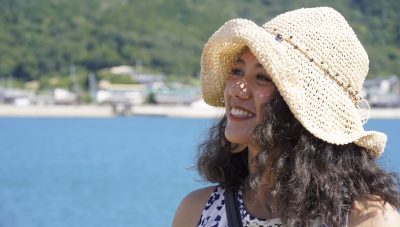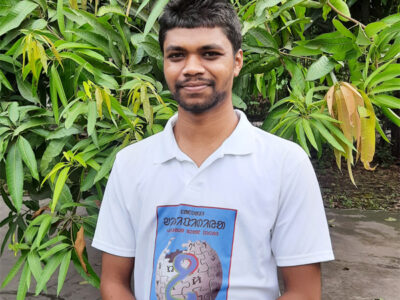
Photo provided by Tuhi Martukaw (Jocelyn Ting-Hui Hung Chien 洪簡廷卉)
As part of a new social media campaign to celebrate linguistic diversity online throughout Asia, every week a different language activist and advocate will be taking turns managing the @AsiaLangsOnline Twitter account to share their experiences with the revitalization and promotion of their native languages. This campaign is a collaboration between Rising Voices, the Digital Empowerment Foundation, and the O Foundation.
Each week, the upcoming host will answer several questions about their background and will give a brief overview of their language. This Q&A is with Tuhi Martukaw (Jocelyn Ting-Hui Hung Chien) (@JocelynJinumuTW) who will provide a sneak preview of what she will be discussing during her week as host.
Rising Voices: Please tell us about yourself.
I am an Indigenous woman from the Kasavakan Community of the Pinuyumayan Peoples in Taiwan. I currently act as the coordinator and founder of the LIMA Taiwan Indigenous Youth Working Group, a freelance journalist and researcher, as well as a Ph.D. student in communication studies. I am an active Indigenous rights defender at all levels.
I was the co-chair of the Global Indigenous Youth Caucus, which is a working group formally recognized by the UN Permanent Forum on Indigenous Issues from 2010 to 2015. I founded the LIMA Taiwan Indigenous Youth Working Group in 2013 with the vision to connect the indigenous youth across the borders and continents, to share views and experiences, to contribute in the struggle of their rights and to build up their capacity to shoulder the responsibility of carrying on their cultural heritage and advocacy for equality and justice.
RV: What is the current status of your language on the internet and offline?
The Pinuyumayan language is identified as an endangered language by UNESCO. Only some people who are over 50 years old could speak and use the language fluently in daily conversations, while very few youth have the capacity to speak the language.
Unfortunately, I am among those who cannot speak our own language. Although there are policies and programs to facilitate the preservation of the language, the efforts failed to bring the language back to people's daily lives but rather make the language as merely a subject to learn not a vehicle to pass on traditional knowledge. Therefore, it is rarely used either online of offline.
RV: On what topics do you plan to focus during the week that you’ll manage the @AsiaLangsOnline Twitter account?
Although the Pinuyumayan language is in a critical condition, the Pinuyumayan culture has been revitalized and thriving since the recent two decades. There are various efforts made by the people themselves to bring the language back to daily lives. I would like to share the initiatives made by the people, including songs, traditional chants and rituals.
RV: What are the main motivations for your digital activism for your language? What are your hopes and dreams for your language?
It is important to see our own Indigenous languages as languages used in daily live at home, at school and at work, meaning the Indigenous languages are languages to live with, not just to preserve with all the recordings and documentations. I have the vision that in the near future, kids are not learning the Pinuyumayan language at school, but the Pinuyumayan language is the language used to teach all the subjects and we will live in an environment people talk about the weather, bargain over the price of vegetables and even argue for a parking spot in the Pinuyumayan language.



